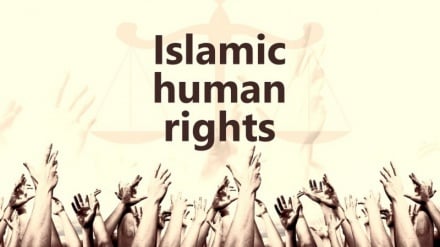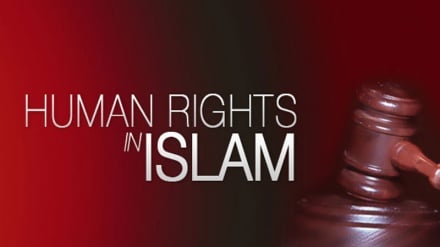Islamic Human Rights (17)
In this episode, we study the status of spiritual rights within the framework of Islamic human rights.
As a reminder, it was said that the right to existence is one of the most fundamental rights of mankind, and in the view of Islam, man’s life and existence is divided into material and spiritual existence. The material life covers the physical life of mankind in the material world. However, the spiritual life is closely bond with human soul, which maintains an innate divine nature. Mankind is an eternal creature, whose spiritual life continues after his death.
In the view of Holy Quran, the innate divine nature of mankind maintains three features. Firstly, it seeks God. Secondly, it has been embodied in all human beings; and thirdly it is saved from any change or transformation.
The 30th ayah of Surat al-Rum in Holy Quran notes: “…the origination of Allah according to which He originated mankind; there is no altering Allah’s creation…”
Holy Quran has also referred to the relationship between material and spiritual existence. In the view of Holy Quran, if mankind is forced to choose one of these two, he should sacrifice his material existence and should choose spiritual existence.
The 74th ayah of Surat al-Nisa in Holy Quran notes: “Let those fight in the way of Allah who sell the life of this world for the Hereafter…”
So those, who sacrificed their material life for the sake of their spiritual life, should fight in the way of Allah and those who do not make this choice will be remorseful on the Day of Judgment.
The 24th ayah of Surat al-Fajr in Holy Quran notes: “He will say, ‘Alas, had I sent ahead for my life!”
The other fact which Holy Quran points out is that spiritual life is much more fruitful than material life. Last week, it was said that denial of the right of mankind to material life takes place with murder, while the denial of the right of mankind to spiritual life takes place with misguidance of man. The one, who misguides others, takes away their spiritual existence.
The 191st ayah of Surat al-Baqarah in Holy Quran notes: “For faithlessness is graver than killing.”
Now, the question that springs to mind is what is the benefit of division of life into material and spiritual existence, for the realm of human rights?
In response, it should be said that the most obvious feature of mankind is his body and physique, which maintains different forms. For instance, differences in climate, race, and geographical positions lead different nations and ethnicities to maintain particular physiques and physical conditions. Even, the geographical conditions impact plants of different regions. At times, it is observed that a plant which grows in a tropical region maintains remedial effects. However, the same plant doesn’t maintain remedial effects in a cold region. Even, a seasoned pharmacologist cannot say for sure that a particular medication maintains the same benefit for all. The important point to note is that mankind is not just limited to his physique. This is because in addition to his material existence, he maintains a spiritual existence. In the view of Holy Quran, the spirit of mankind can secure his prosperity and provide true welfare for man. Holy Quran also points out that human spirit maintains an innate divine nature.
Human spirit can find God everywhere. Hence, human spirit has no boundaries. In the 115th ayah of Surat al-Baqarah in Holy Quran, God notes: “So whichever way you turn, there is the face of Allah!”
It was previously mentioned that the commonalty of all human beings is their innate divine nature. It is noteworthy that if the innate divine nature of mankind is not considered as the source of considered rights; preparation, interpretation, and implementation of human rights would not get anywhere. The human rights set by mankind cannot be considered as worldwide rules and regulations, given that they have been set by human beings. However, religion which has been bestowed by omnipotent and omnipresent God maintains no temporal or spatial restrictions.
Within non-divine teachings or experimental and material sciences, one can never attain a certain rule, and every day the world is witness to emergence of a new assumption which is founded on the ruins of another assumption. However, Islamic concepts never become obsolete.
The third article of the Universal Declaration of Human Rights says everyone has the right to life, freedom, and personal security.
Islamic teachings have also recognized the right of mankind to existence, freedom, and security. However, the important matter is what sort of existence is referred to, and whether the considered existence is materialistic, or spiritual existence?
The existence which the third article of the Universal Declaration of Human Rights refers to is material existence, while spiritual existence has not been considered in this article.
If human life would be considered limited to his physical existence in the material world, what reasons could be presented to prove the elevated values of mankind?
This goes to show the difference between materialistic and divine ideologies. According to divine ideology, God embodied human spirit in mankind’s body, which led to eternity and immortality of mankind, while maintaining an elevated humane value. Hence, human rights are rooted in this innate value.
MR/MG


